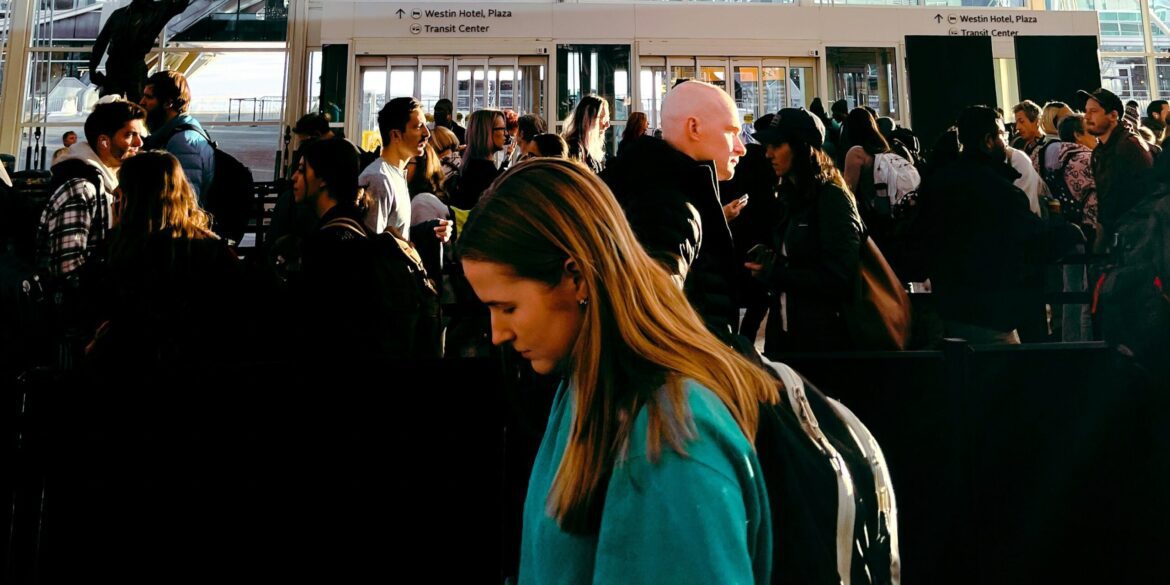On June 9, 2025, President Donald Trump enacted a controversial travel ban that restricts entry into the United States for nationals from 12 specific countries. The new order, which suspends visa issuance and entry for individuals from these nations, has ignited a fierce debate as the 2026 election cycle begins to take shape. Framed by the administration as a national security measure, the travel ban has been criticized by opponents who view it as a politically charged tactic designed to energize Trump’s conservative base ahead of the midterm elections.
The travel ban, which targets nationals from countries including Iran, Syria, Libya, and Yemen, is a continuation of the Trump administration’s hardline stance on immigration. While the White House has emphasized that the measure is aimed at protecting the U.S. from potential security threats, opponents argue that it is discriminatory and undermines America’s tradition of welcoming immigrants. The suspension of visas and entry for individuals from the designated countries will only be lifted for those who already hold valid visas issued before the proclamation, which further limits the scope of exceptions and exacerbates tensions surrounding the policy.
Critics contend that the timing of the ban is no coincidence. With the 2026 elections looming, many see the move as a deliberate attempt to rally Trump’s supporters by tapping into the fears and anxieties surrounding immigration. This type of rhetoric, which has been a hallmark of Trump’s political career, is viewed by many as a calculated effort to stoke division and maintain a stronghold among his base. In particular, the ban targets predominantly Muslim-majority countries, raising alarms over potential religious and racial discrimination.
The travel ban announcement has stirred condemnation from civil rights groups, immigration advocates, and political opponents who argue that it unfairly punishes entire populations based on nationality and religion. Organizations like the ACLU have quickly mobilized to denounce the policy, calling it an extension of Trump’s previous travel bans and a violation of fundamental rights. “This is another example of the Trump administration using national security as a pretext to discriminate against entire groups of people,” said an ACLU spokesperson. “It’s a dangerous move that erodes the very principles this country was founded on.”
The policy is also drawing criticism for its potential to damage the United States’ international relationships, particularly with the countries included in the ban. Diplomats and foreign officials have expressed concern that the travel restrictions could result in strained relations, especially in areas where cooperation with the U.S. is crucial for counterterrorism and regional stability. By targeting specific nations, some argue that the ban could also send a message to allies and adversaries alike that the U.S. is increasingly closed off and less committed to global cooperation.
Supporters of the ban, however, maintain that it is a necessary step to protect the U.S. from security risks. The Trump administration has argued that the designated countries represent a higher threat of terrorism and that the travel restrictions are part of a broader effort to safeguard American citizens. National security experts in favor of the measure point to the fact that some of the countries on the list have been associated with extremism, although critics counter that the ban unfairly groups people based on nationality rather than individual risk.
The travel ban has also reignited the broader debate over immigration policy in the United States, a central issue in the 2026 election cycle. Immigration has long been a point of contention between Republicans and Democrats, with Trump consistently championing restrictive immigration policies, including the construction of a border wall with Mexico and the implementation of the controversial “Remain in Mexico” policy for asylum seekers. As the U.S. continues to grapple with immigration-related challenges, the 2026 election will undoubtedly serve as a referendum on the future direction of the nation’s immigration system.
The controversy surrounding the travel ban is not only about policy but also about its potential electoral consequences. By implementing such a measure, Trump is drawing a clear line in the sand, positioning himself as the protector of American values against perceived foreign threats. His supporters are likely to view the travel ban as a bold statement of strength, while his detractors will argue that it is an unnecessary and harmful move that harms innocent people and tarnishes America’s reputation.
As the 2026 elections draw nearer, the travel ban is expected to remain a key issue, with both parties using it to rally their bases. For Democrats, the policy may serve as a rallying cry for voters who are concerned about civil liberties and human rights, while Republicans will likely continue to emphasize national security and the importance of protecting U.S. borders. The legal and political ramifications of the travel ban are likely to play out in the courts and the public arena, with challenges to the policy already in motion.
As the debate over the travel ban continues to unfold, the issue of immigration remains at the forefront of the national conversation. The outcome of this controversy, along with other key policy decisions in the lead-up to the 2026 elections, will likely play a pivotal role in shaping the political landscape for years to come.

